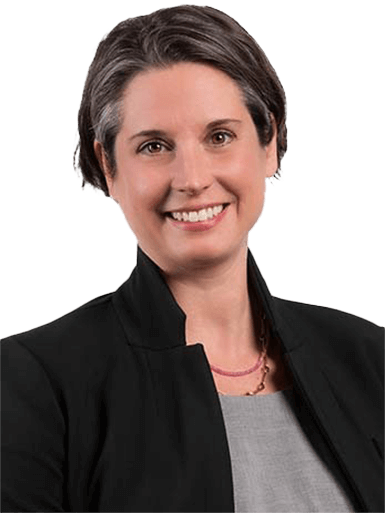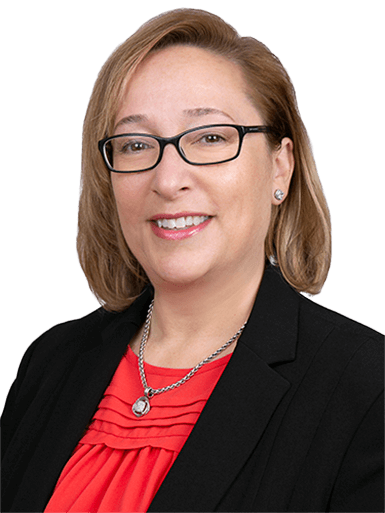Seminar Recap: Unlocking the CFO’s Role in Digital Transformation
During AAFCPAs’ recent Nonprofit Seminar (April 2024), Robyn Leet and Joyce Ripianzi, CPA briefed approximately 400 attendees on ways CFOs can unlock digital transformation within their organization.
The full session was recorded and may be viewed as a webcast at your convenience. >>
Faced with resource constraints, nonprofit organizations are driven to keep operations lean to advance their mission. One way is through digital transformation, which leverages technology to enhance efficiency and productivity. By incorporating new technologies, nonprofit CFOs can streamline operations, improve donor engagement, boost service delivery, and accomplish more with less.
Digital transformation involves the integration of digital technology into all areas of an organization, thus fundamentally changing how it operates and delivers value. This might be through the integration of emerging technologies such as Robotic Process Automation (RPA), Artificial Intelligence (AI), generative AI, and Optical Character Recognition (OCR). RPA helps to automate routine tasks, freeing staff to focus on more strategic initiatives, while AI and generative AI offer valuable insights from large datasets and generate content, such as presentations. OCR, which is already in use in tools like Bill.com, simplifies document processing by reading forms, including invoices, and learning patterns for automated data entry.
Setting the Tone for Transformation
Nonprofits don’t always have enough people to fill all roles, and existing team members often feel overwhelmed by mounting responsibilities. Digital transformation can help to alleviate those pressures, making existing staff more productive and making the organization as a whole more attractive to new talent.
Senior leadership and CFOs play a pivotal role in this transformation by setting the tone from the top. Begin by encouraging curiosity, alleviating fears, creating an environment that encourages learning, and having conversations about robotics, artificial intelligence, generative AI, and everything that is happening in the industry. As you do, leaders should address concerns that team members may have about job security and clarify that technology is meant to augment human work, not replace it.
Developing a Timeline and Roadmap
Digital transformation is an ongoing process. Given the rate at which technology evolves, it’s best to keep plans flexible. Establish a timeline but prepare to adjust that timeline as new tools and updates emerge. Then prioritize tasks, push forward, and continue to reprioritize.
Focus first on the areas you know best and identify staff members best suited to adopt and champion new technologies. This can create a ripple effect throughout the organization.
When creating a roadmap for change, consider the following questions.
- What would be most effective and make the largest impact?
- What would provide the most balanced approach (current trends vs. pain of change)?
- How much capital should be invested?
AAFCPAs advises that clients build their roadmap in a way that makes a quick change that team members can embrace and get excited about. Avoid rolling out too many initiatives at once. Your roadmap is very important across the entire organization. Look at tools within the finance department, for instance, that touch everybody else. Those are the items you might want to tackle first.
Nonprofits should also consider investing time and energy into creating a think tank, where key personnel discuss industry trends and explore new technologies. Identify opportunities for innovation and initiate projects focused on emerging technologies. Collaborate with cross-functional and multi-generational teams to drive those initiatives forward while also leveraging the diverse expertise within your organization. Establish a platform for capturing insights, ideas, and experiences. Finally, set clear goals and link those with measurable outcomes.
Evaluating Current Technology and New Solutions
Once you’ve established a think tank and have clear goals for innovation, assess your technology landscape. Begin by examining existing tools and systems—whether they are up to date or if new technologies might enhance processes. Ask yourself: Is there an upgrade or new release available for use? Does our technology meet our needs? Likewise, maintain strong relationships with your current technology vendors, so you better understand their roadmaps and how their products might evolve to meet your needs.
Beyond existing tools, explore new technologies that could enhance your operations. For example, AI-powered note-taking tools may improve meeting efficiency by automatically generating summaries and tracking action items. Consider where you might automate repetitive tasks, augment decision making with better data, or accelerate processes to save time. Where might you produce more or perform tasks faster?
Some options include:
- Automated Bill Payment Platforms: Indy, BILL, Divvy, Ramp
- Automated Manual Repetitive Tasks: Uipath, RPA
- Generative AI and LLM: ChatGPT, Copilot
- Generative AI for Video and Marketing Content: Sora AI
- LLM Diagnosis to Support Doctors: IBM Watson Health
- Generative AI and LLM for Documents, Workflows, Processes, Analytics: Docyt
- AI Grant Writing Software: Grantable
- Enhance Beneficiary Support: Chatbots
Digital transformation requires an investment, but it can lead to significant savings. Assess the cost of new technologies against their potential savings in time and resources. Consider the ways in which technology might augment staff a bit differently. Continuous education and training are also essential. Make sure everyone understands how to best use new technologies and how they benefit your organization.
Nonprofits have an opportunity to drive significant efficiency and productivity improvements. As CFO, your support and enthusiasm for digital transformation can inspire others. Highlight benefits and successes to foster a positive attitude toward change. AAFCPAs encourages clients to embrace new technologies, foster a culture of learning, and lead by example to make the most of limited resources and further advance your mission.
If you have questions, please contact Robyn Leet, Partner, Business Process Assessments & Attestations at 774.512.4010 or rleet@nullaafcpa.com, Joyce Ripianzi, CPA, Nonprofit Partner, Outsourced Accounting & Fractional CFO at 781.290.6373 or jripianzi@nullaafcpa.com—or your AAFCPAs Partner.


